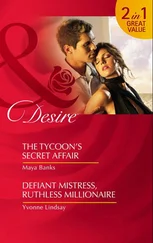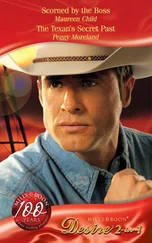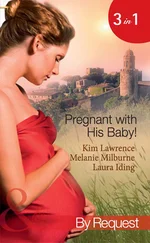“ Vero Madre be praised!” I cried. “Is that the place?”
He shook his head no. “This is San Domenico, the great Dominican monastery and spiritual home of their order.”
I had had enough. “Could we not beg sanctuary here?”
The perfect profile hardened as the head shook again. “No. They would no more shelter a Franciscan than they would shelter one such as yourself . . .” He blushed in the dawn-light, and hurried on to cover his mistaken slur. “That is to say, their order is the only one they recognize, and they follow their rule with strict observances. Our destination”—he pointed skyward again—“sits there, at Fiesole.” I followed the finger to a small golden building above us, crazily perched on the crown of the mountain, with a hundred steps leading to the cloister.
Fuck .
I’m afraid I was not the best of company on the final climb. I was so convinced that San Domenico was our destination, I could not bear even a short distance beyond. My feet bled, I groaned and bellyached, and begged to stop at every step. Our plight and my story were both forgot as we trudged to our goal, and the brother was merciless in his pace. “The dawnlight begins to spread in the valley,” he explained, “the umbra of night is retreating up the hill—we are more visible with every second. Onward.”
But neither his poetic speech nor his warning could move me farther. I had neither energy nor will to complete the final climb. As we reached the stone staircase of the little hilltop monastery I collapsed, weeping, on a stone bench at the foot.
“Just a moment,” I begged. “At least let me put myself to rights before I meet your abbot. You must see the sense in that?”
He let me sit then and rub my feet, moaning with pain as I once again examined their cuts and blisters, magnified a hundredfold from when we had stopped before. After a moment the monk sat beside me, but only when he gasped did I look up and see what he had seen.
And I ceased my bellyaching.
For there below us Florence was laid out like a glittering carpet of gold, wrought by a thousand Persian infidels. The Duomo was now no tiger sentinel, but a warm copper bell, the Arno a twisting ribbon of gilt. A city of fable and infinite beauty in the brand-new light of the day. We stared in silence, shoulder to shoulder, while a feeling of escape and companionship warmed us with the sun at our backs. I began to pat my wild mass of hair into place in preparation to meet the abbot. I rose before my friend, but he held my sleeve. “Don’t you think it’s time you showed me?”
My filthy mind ran the gamut of everything about my person he might be asking to see, before my middle brain reminded me that never, with look or gesture, had he shown any interest in me beyond the irritation of my presence. No, I knew him to be truly devout, so had to ask further. “Show you what?”
“What this is all about.” He half smiled. “The painting.”
I sat again and drew the rolled canvas from my bodice. It was warm from my breasts and somewhat besmottered with sweat, for which I blushed. But he did not seem to notice and unrolled it tenderly in his long, ink-stained fingers, fingers that were clearly used to handling documents of great price. I looked, not at the painting but at his face as he took in the figure of Flora, Venus, the beauteous trio of dancers, the martial figure with the sword, and orange grove encompassing all. He looked for a long, long time in silence, with an expression of almost religious revelation. Saint Paul cannot have looked more ecstatic on the road to Damascus. I found myself, once again, thinking about what he would look like in bed. (Brother Guido, I mean, not Saint Paul; from what little I know of Scripture, I am convinced that that apostle would certainly have been resistant to my charms.) Then he turned and looked at me with his startling blue eyes, full in the face for the first time that night.
“It’s beautiful,” he said. He looked back at the picture in his hand then Florence below him, and then the picture again. “Beautiful,” he repeated. “I don’t know which is more so.”
8
Even I had to admit that the Franciscan monastery at Fiesole was a place of peace and beauty. Glowing in the breaking morning, small and perfectly perched on the high hill, the place seemed set in amber, a preservation of an earlier age. We had been to Dante’s hell; now we had climbed the heights into the poet’s paradise. Certainly it is true to say that I have never been as happy to see a place in my life. When we reached the head of the wide golden staircase set into the hill, and I found balm for my torn feet on a hundred stone steps warmed by the healing sun, I surveyed the perfect little cloister, the tiny chapel, and the cells beyond, and responded to the sacred peace in my own way. “Thank fuck for that.”
Brother Guido shot me a look of ice. “Watch your tongue, signorina. You are in God’s house now.”
“I’m sure he’s heard it all before.” My flippant nature surfaced as, once again, I began to feel safer. Brother Guido, on the other hand, seemed to have become more edgy, as our interview with his friend the abbot approached. I began, suddenly, to doubt his influence, else why would he fear an application to a man he claimed to know well?
The place seemed deserted and I knew that we must have come at a time of sleep, when all the monks would be in their cells, or at prayer, when they would all be packed tight as sardines in the monastery church. (I do know a little of the holy orders, for, of course, I was raised by nuns, but we do not have leisure to speak of that now; more later.)
At last we saw a lay brother hurrying across the quad, and I knew our moment had come. Brother Guido gripped my arm till it hurt. “Head down and no talking,” he said. “Remember all we discussed.” And with that he strode across the dewy grass to intercept the brother. After a brief conference I was beckoned over and the good monk led us through an arch into an even smaller quad, just as pretty, this one boasting a clear round pool, in which a myriad of golden fish switched and flashed. We were led to an oaken door, and the lay brother knocked and entered ahead of us. I tucked my chin to my chest as Brother Guido had told me, and drew my hood so far forward that I never saw the lay brother from first to last, merely heard, in a Sicilian accent, “My Lord Abbot will see you now.”
I clasped Brother Guido’s skirts, as I had been told, and followed in his wake into a light and airy chamber empty of all save a chair, a scribe’s table, and a crucifix. The window, crisscrossed with diamond quarrels, looked out into yet another tiny quad, and I boggled at the geography of the place; it seemed passing small but in fact fitted together like a series of concentrick squares, one fitting inside the other like a Russian’s doll.
The abbot rose from his chair and greeted us, with a word I didn’t know, and Brother Guido replied in the same tongue. I stole a quick look at the old fellow and became aware at once of three things.
Qualcosa Uno: he was white haired and smiling, like a kindly nonno.
Qualcosa Due: his voice when he spoke mangled our fair language as I have never heard. Such strange stops to our beautiful vowels, and jerky consonants like a soldier’s drum. I had been prepared for this accent on the climb, however, for the abbot was an Englishman by birth, known as Giles of Cambridge. I knew now he had greeted my friend in English.
Qualcosa Tre: his eyes were the blue of day-old milk, with a smoky film that lay over the orb, pupil, whites, and all. And that’s when I realized that Brother Guido’s scheme, which we had discussed all the way up the hundred steps, had a good chance of working.
Читать дальше












